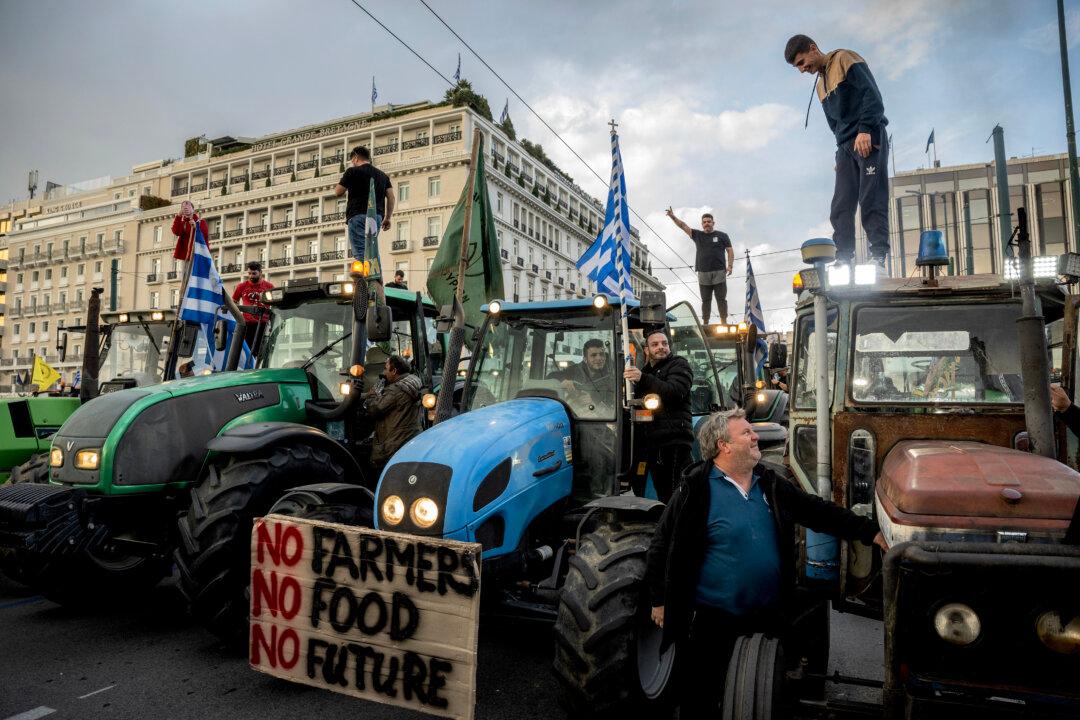Greek farmers converged on Athens on Feb. 20 to protest mounting energy costs and European Union trade policies that they say are leaving them unable to maintain their businesses.
“There are many problems, most of all, fuel and energy costs,” one protesting farmer in the Greek town of Kastro, some 75 miles north of Athens, told Reuters.





